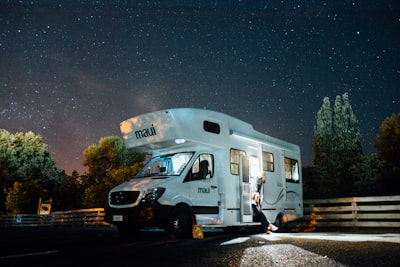Motorhomes, campers, trailers and other recreational vehicles (RVs) enable you to experience adventures throughout the many corners of the continent, often without having to worry about lodging or shelter. However, even the most seasoned explorers cannot always avoid accidents and other unfortunate situations, making appropriate financial protection necessary. Fortunately, RV insurance can provide robust coverage for you, your passengers, and your vehicle, allowing you to enjoy your journeys fully with ample financial security and peace of mind.

How Does RV Insurance Work?
Your RV insurance establishes a legal contract between you and your carrier. As the policyholder, you can explore various policies, coverage options, and endorsements while tailoring your insurance to your needs and preferences. After agreeing on terms, you pay your insurance company an agreed-upon premium throughout the period of the policy. In exchange for these payments, you can file a claim following covered losses and, if approved, may receive financial assistance up to your policy’s limits and minus your deductible.
How Does RV Insurance Differ From Auto Insurance?
If you already have standard auto coverage, RV insurance policies may feature many familiar components, such as the following:
- Bodily injury liability coverage may financially protect you if you are at fault for an accident that harms another party, such as a pedestrian or other motorist
- Property damage liability coverage may help you compensate other parties, such as vehicle and building owners, if you are responsible for damaging their property while behind the wheel.
- Collision coverage can help you manage repair costs if your RV sustains damage from a collision.
- Comprehensive coverage may help you handle losses from damage to your RV caused by fires, vandalism or severe weather.
- Medical payments coverage may assist you and your passengers with health care expenses following accidents, regardless of who was at fault.
- Uninsured and underinsured motorist coverage may provide financial relief should a party lacking insurance be at fault for your losses.
Still, while the aforementioned parts of an RV insurance policy may be somewhat similar to the coverage you might purchase for your everyday car, you may also want to consider additional features, such as the following:
- Vacation and campsite liability coverage can financially protect you from incidents affecting third parties that may occur while you’re parked, such as at an RV park or campsite.
- Contents coverage can establish a financial shield for personal belongings being stored or transported in your RV, such as electronics, clothing and hiking equipment.
- Storage coverage may provide a cost-effective solution for insuring your RV while laid up during the winter or between trips.
Where Can I Get RV Insurance?
As an independent insurance operation in the Villa Rica area, the dedicated team at Michelle Allan Agency Inc. is well-positioned to help you identify appropriate coverage options and retain ideal policies. Contact us today to learn more or to get a personalized RV insurance quote.
This blog is intended for informational and educational use only. It is not exhaustive and should not be construed as legal advice. Please contact your insurance professional for further information.